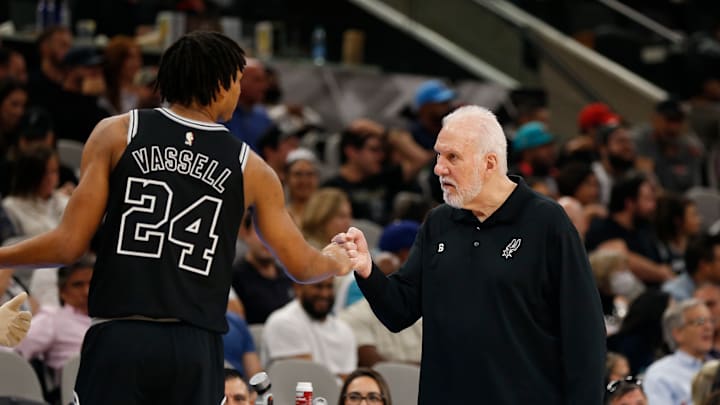5: The addition of a second-round pick exception
For teams with cap space, signing their second-round picks was relatively simple. However, for teams above the cap, it was more complicated. San Antonio is well aware of this after previously having to use exceptions to sign second-round picks to multi-year deals. They did so in the past with Dejuan Blair and Tre Jones.
When San Antonio is finally back over the salary cap, they could use the newly created second-round pick exception to sign those players rather than relying on an existing exception. That would allow the Spurs to use that money elsewhere, perhaps to sign a veteran player.
This rule likely won't impact the Spurs soon, but it could be helpful down the road, especially with their surplus of second-round picks. This rule seems to make second-rounders more desirable than before since good teams often had limited ways of signing them to long-term deals.
Now they can, although many have already traded away most of their second-round picks to teams like the Spurs. With the franchise hoarding those assets, other teams over the cap but under the luxury tax could seek out the Spurs for a trade.
One example could be a team with the 28th pick in the draft opting to trade back with the Spurs, who have multiple high second-round picks. This deal could be an attempt to save money while adding a couple of cheap young players with upside. This new CBA provision opens up several fascinating possibilities for the Spurs.
